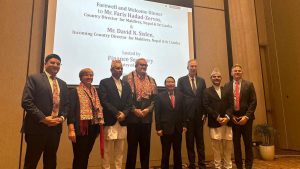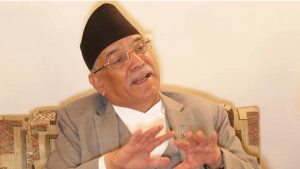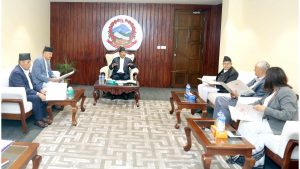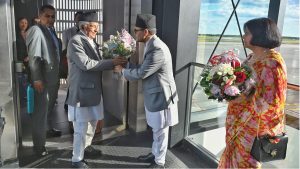
What Transpired in Today’s Baluwatar Discussion?
In a meeting convened by Prime Minister Pushpa Kamal Dahal at Baluwatar on Friday, discussions between ruling parties and the main opposition, as conveyed by Chief Whip of Nepali Congress Ramesh Lekhak, concluded on a positive note.
Key points discussed during the session included the formation of a parliamentary probe committee to investigate cooperative fraud, a matter of grave concern in recent times. Lekhak emphasized that deliberations surrounding the structure and mandate of this committee were constructive, indicating a shared commitment to address the issue effectively.
A significant topic of debate revolved around the alleged involvement of Deputy Prime Minister and Home Minister Rabi Lamichhane in financial irregularities within various cooperatives. The opposition underscored the necessity of including Lamichhane’s name in the terms of reference of the probe committee, a move that the ruling coalition has yet to fully endorse.
Furthermore, the meeting shed light on recent developments, including the arrest of Kantipur Media Group Chairman Kailash Sirohiya, drawing attention to broader concerns regarding press freedom and accountability.
The participants of the discussion included PM Dahal, CPN-UML Chairman KP Sharma Oli, Chief Whip Mahesh Bartaula, NC Vice-president Purna Bahadur Khadka, Chief Whip Ramesh Lekhak, NC leader Krishna Prasad Sitaula, and CPN (Maoist Center) Chief Whip Hitraj Pandey. Notably absent was the ruling Rastriya Swatantra Party.
Despite efforts to find common ground, differences persisted, leading to an inconclusive outcome in the morning session of the task force responsible for drafting the terms of reference for the probe committee. This impasse underscores the ongoing tension between the ruling coalition and the opposition, manifesting in parliamentary disruptions and the adjournment of the House of Representatives meeting.
With the constitutional deadline looming for the presentation of the new fiscal year’s budget by May 28, the delay in finalizing policies and programs adds urgency to the need for swift resolution in parliamentary proceedings.















Comments